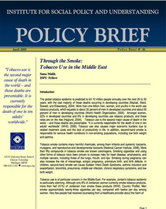
Sana Malik

Expert
Dr. Sana Malik is an Assistant Professor at the Stony Brook University School of Social Welfare and an expert in disparities research. She has served as a consultant for various health and social service agencies and was awarded a U.S. Fulbright Fellowship in Jordan. Dr. Malik completed a Masters in Social Work from Virginia Commonwealth University, a Masters in Public Health from Johns Hopkins University, and a Doctorate from Johns Hopkins University in the Department of International Health, with certificates in Maternal and Child Health and Humanitarian Assistance.
Dr. Malik’s area of inquiry falls broadly under the umbrella of examining health disparities in immigrant, refugee, and minority populations, with a focus on behavioral health, cancer-related disparities, the social determinants of health, loneliness and social support structures, barriers and facilitators to care seeking behaviors, culturally as well as religiously tailored health education programming, and program design and evaluation. Among other experiences, she has worked with the United Nations High Commissioner for Refugees to create a standardized methodology to measure the quality and provision of health care services delivered in refugee camp settings around the world. As a research program manager at the University of Chicago Initiative on Islam and Medicine, Dr. Malik helped manage a research team, developed research tools, implemented a health education program, and reported research at local and international levels surrounding cancer screening intentions, barriers, and behaviors with Muslim women. Dr. Malik joined the faculty at Stony Brook University in 2017, and has been an integral part of the team since then. More recently, Dr. Malik was awarded a seed grant from the State University of New York Research Foundation to systematically examine the impacts of social distancing as a result of COVID-19 on mental health and substance use outcomes in young adult populations in New York and is co-leading a cross national project examining the impact of COVID-19 in graduate student populations.
Dr. Malik’s current research interests include examining the effectiveness of a relationship education program for at-risk populations and examining the role of parental health decision-making and cultural and religious values and norms in HPV vaccination uptake, with a focus on college-aged populations. With her work, Dr. Malik has become leader in culturally and religiously tailored, community-based health interventions, with a focus on addressing health and specifically cancer disparities among minority women.
Education
PhD, Department of International Health, Johns Hopkins University (Certificates: Maternal and Child Health, Humanitarian Assistance)
MPH, Public Health, Johns Hopkins University
MSW, Virginia Commonwealth University
Areas of Expertise
- Social determinants of health and mental health
- Health disparities among minority, immigrant, and refugee
populations - Cancer screening and care
- Culturally and religiously-tailored health education programming
- International public health
- Program design and evaluation
Publications
Through the Smoke: Tobacco Use in the Middle East
The global tobacco epidemic is predicted to kill 1
01 April, 2009


